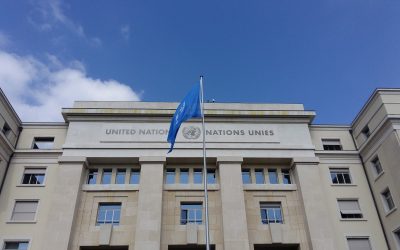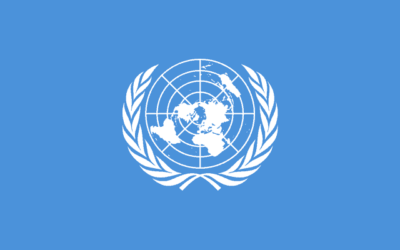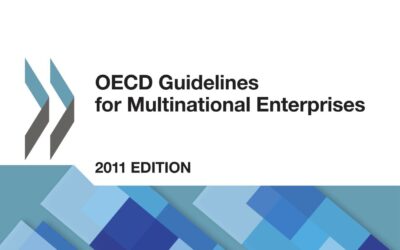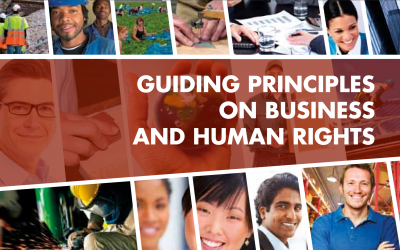В Руководящих принципах ООН подчеркивается важность доступа к средствам правовой защиты для жертв нарушений прав человека, связанных с предпринимательской деятельностью. Согласно комментарию, государства и предприятия могут предоставить несколько различных форм правовой защиты, в том числе: извинения, реституцию, реабилитацию, компенсацию, карательные санкции, судебные запреты или гарантии неповторения.
Как и в случае с большинством международных стандартов в области прав человека, государства несут основную ответственность за выполнение этого обязательства. Принцип 25 поясняет: «В рамках своей обязанности защищать от связанных с предпринимательской деятельностью нарушений прав человека государства посредством судебных, административных, законодательных или иных соответствующих средств должны принимать надлежащие меры для обеспечения того, чтобы в случаях, когда такие нарушения происходят на их территории и/или в пределах их юрисдикции, затрагиваемые стороны получали доступ к эффективным средствам правовой защиты».
Хотя государства являются основными носителями обязанностей в отношении третьего компонента, предприятия также должны играть активную роль в обеспечении доступа к средствам правовой защиты. Принципы 29 и 30 определяют шаги, которые предприятия и коммерческие организации должны предпринять для облегчения доступа к средствам правовой защиты:
- “С целью оперативного рассмотрения жалоб и прямого возмещения ущерба предприятиям следует учредить в интересах отдельных лиц и общин, которые могут оказаться жертвами неблагоприятного воздействия, эффективные механизмы рассмотрения жалоб на оперативном уровне или принимать участие в их работе.”
- “Отраслевые, многосторонние и другие совместные инициативы, основанные на соблюдении норм в области прав человека, должны предусматривать наличие эффективных механизмов рассмотрения жалоб.”
Узнайте больше о государственных средствах правовой защиты здесь и негосударственных средствах правовой защиты здесь. Вы также можете найти здесь информацию о механизмах рассмотрения жалоб.










